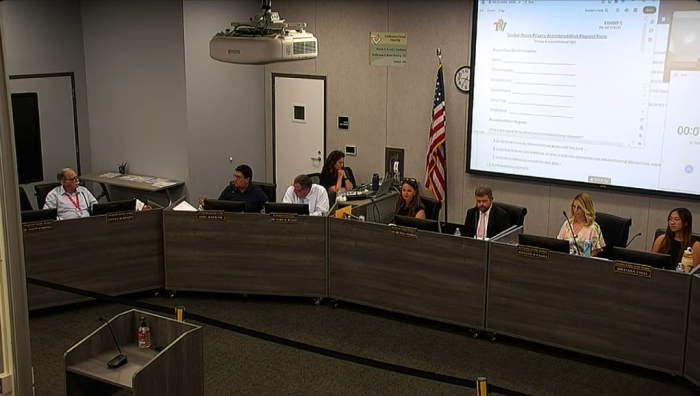
Is a California school district seeking to deem those who oppose boys in girls’ restrooms “mental health” patients?
The Temecula Valley Unified School District has sparked debate with a proposed policy to address locker room accommodations, aiming to balance California’s legal requirements with student privacy concerns. The policy, discussed at the school board’s Aug. 26 meeting, allows students to enter opposite-sex facilities if they self-identify as such, while offering opt-out options for those uncomfortable sharing spaces due to religious or mental health reasons.
Critics, however, argue the policy unfairly labels students seeking privacy as needing mental health accommodations, raising concerns about stigmatization.
The proposed Mental Health Accommodation Request Form is still pending review by the school district’s attorneys, but a copy of the form shared by influencer Chaya Raichik on Libs of TikTok includes language that requires the parent or guardian to acknowledge the request is made in "accordance with federal and state laws" and asks for a description of the "mental health condition" as well as the nature of the requested accommodation.
District officials say the policy aligns with California Education Code 221.5F, which states, “A pupil shall be permitted to participate in sex segregated school programs and activities including athletic teams and competitions and use facilities consistent with his or her gender identity irrespective of the gender listed in the pupil records.”
This mandate, reinforced by Assembly Bill 1266, passed in 2013 and signed into law by then-Gov. Jerry Brown requires schools to allow access to facilities based on a student's self-declared gender identity.
However, the policy introduces accommodations for students who, as one board member stated, want “a fair way to opt out if they're uncomfortable.”
These accommodations, including private changing areas like bathroom stalls, can be requested for religious or mental health reasons under Section 504 of the Rehabilitation Act and California Education Code § 56000, which outlines rights of those who claim a disability.
To protect privacy, student records will note only “accommodation” without specifying the reason, as proposed in an amendment: “Accommodation has been provided in accordance with this regulation but that student records shall not identify or label a student by specific type of accommodation request.”
At the board’s meeting last week, the district appeared to punt on the issue, saying they would await further legal guidance before moving forward.
The Christian Post reached out to the district for comment last Wednesday. This article will be updated if a response is received.
Not surprisingly, the inclusion of mental health accommodations for religious objections has drawn criticism.
Sonja Shaw, a member of the Chino Valley School Board and candidate for California state Superintendent in 2026, called the policy “pure madness” and said two of her colleagues on the board are fighting in opposition.
“The girls are treated as the problem,” Shaw said. “This is upside-down, dangerous, and exactly what we warned would happen.”
"California politicians and the teachers’ unions have been hellbent on telling boys and girls they’re 'born in the wrong body.' We continue to stand for truth and fight against this insanity."